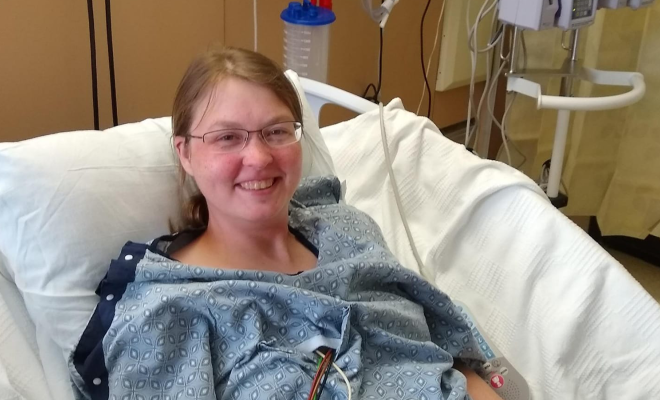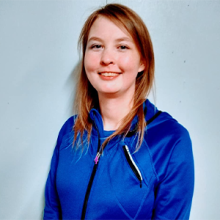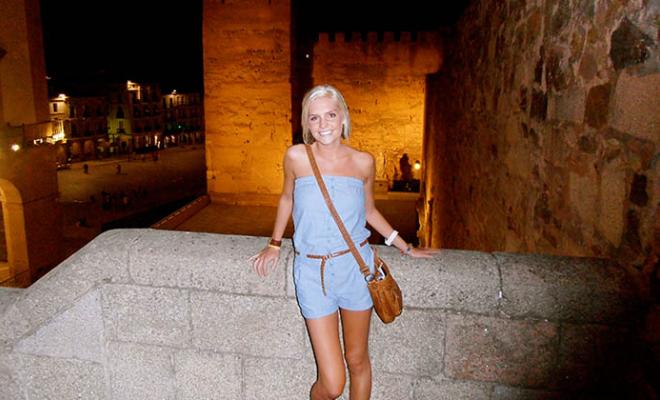It’s 1998, and I’m 8 years old and I have cystic fibrosis. I think about my death frequently. I feel genuine panic during blood draws and IVs. I have frequent flashbacks to all the medical procedures that had already gone wrong in my short life. Looking at diary entries I wrote at that age, I already had many symptoms of depression, anxiety, and post-traumatic stress disorder (PTSD), but wasn’t diagnosed and treated for these conditions until I was in my mid-20s. Why is that?
Part of the answer is because lack of awareness of and stigma surrounding mental health have long been present in society, including the medical system. Some providers were kind, but didn’t seem to have ever encountered someone like me, who had such severe procedural anxiety that it nearly kept me from getting life-saving treatment. Other providers I encountered gaslit me into believing the events that led to medical trauma hadn’t happened the way I remembered them. “Am I crazy?” I asked myself (but never anyone else).
As I grew up, I had a friend pass away from end-stage CF because their lung transplant application was rejected after evaluators read a note in their medical record about a suicide attempt from four years earlier. I — perhaps rightly, perhaps not — feared that if I shared my depressive thoughts with a medical professional, it would somehow get back to my CF care team and take away the only hope I had at the time: a double-lung transplant. So, I kept silent. When asked, I was always “good!” and never brought up my mental health issues. I sure didn’t want to be labeled “crazy” in my permanent medical record, after all.
I am thankful to see that this stigma and denial is becoming a thing of the past in CF care centers. I was pleasantly surprised to hear the sentence “mental health is a universal experience” during the third plenary at this year’s North American Cystic Fibrosis Conference plenary session, “There Is No Health Without Mental Health: Progress, Challenges, and Hope for the Future.” This session, delivered by Beth Smith, MD, Anna Georgiopoulos, MD, and Shaina Blair, LCSW, traced the progress of mental health care as a part of CF care and included perspectives from individuals with CF and their family members and CF care teams. Everyone involved has a direct investment in the physical and mental well-being of those of us living with this disease.
Dr. Smith revisited an important study (abbreviated TIDES) that showed that people with CF and their caregivers are subject to higher rates of depression and anxiety. Some other data presented suggested that mental health issues are statistically associated with twice the normal mortality rates for CF patients; in parallel, the poorer physical health of CF patients can also lead to worse mental health issues.
Simply put: CF affects mental health, and mental health affects CF. This makes sense. I mean, as CF patients, we are conditioned from a young age to react with anxiety in medical situations.
We know that the smallest change in our bodies could mean weeks in the hospital undergoing painful, terrifying procedures and treatments, or could even mean our premature deaths. Is it any wonder that anxiety and depression are higher in our communities?
I should point out that many of the people we are turning to for care may be experiencing their own mental health struggles. Shaina Blair, who has served as a CF care team mental health coordinator, illustrated that caring for people, including during the COVID-19 pandemic, can negatively affect the mental health of care team members — and health care workers in general. And she discussed coping strategies. This is an issue the entire CF community experiences — we’re in this together.
I was blessed to undergo a double-lung transplant on October 25, 2013. After that surgery, my whole life changed in many amazing ways — and some terrible ways. My mental health reached a crisis point and I was hospitalized for my safety while I went through intensive treatment of my depression. I felt completely alone, like nobody understood what I was going through, and in some moments, like I shouldn’t even be here. Why am I alive, when others who I thought were somehow more deserving, are not? I came to understand this was called “survivor’s guilt” and that it was actually pretty common in the CF and transplant communities. Many of our fellow young CFers have been killed by this disease, leaving us to only wonder how much they could’ve changed the world as adults. But now I carry their memories with me — not as weights, but as one would a treasured diamond necklace: close to my heart. Now I live, write, and speak for them, as well as myself.
The type of resources now available on the CF Foundation web site and offered as part of clinic visits could have prevented a lot of issues I struggled with as a young adult, but I’m so grateful that the next generation of CFers coming up will have access to this life-changing information.
More work is underway, much of which will focus on CF-specific mental health issues. According to a recent survey, high on the list are several issues: the effects of commonly prescribed CF medications on mental health, PTSD, medical trauma, grief and bereavement, and survivor’s guilt. All huge issues that require serious consideration and more than just simple answers.
However, there is definitely hope on the horizon! Dr. Georgiopoulos discussed the pipeline of mental health interventions, including both medication and psychological treatments. Initiatives like bringing mental health coordinators onto the multidisciplinary CF team has changed my life for the better. For instance, EMDR — eye movement desensitization and reprocessing — has been a transformative treatment for my anxiety and trauma responses. This treatment was recommended to me by a psychiatrist at my CF clinic after she noted my higher-than-normal scores on an annual patient screening for depression and anxiety.
As individuals and as a community, we are focused first on lengthening life — rightly so — but we can lose focus on the quality of that life, which is based deeply on the condition of our hearts and minds. We need to address both the physical side and the mental side of health to be fully well. Mental health is a state of well-being, not just the absence of disorder.
Despite all the challenges we go through while living with the disease, people with CF statistically tend toward a perspective of optimism. Now, with all this help becoming available to patients, families, and care teams, there is even more hope. As we focus on that hope for the future, we can also take joy from the present moment, in which we can gather as a community to support these recent mental health advances. As Shaina Blair noted, “There’s something deeply impactful — perhaps even transcendent — in being part of a collective making strides toward a shared dream.” Let’s keep making these Great Strides toward mental and physical well-being.
Watch the plenary 3 video below.
Interested in sharing your story? The CF Community Blog wants to hear from you.





